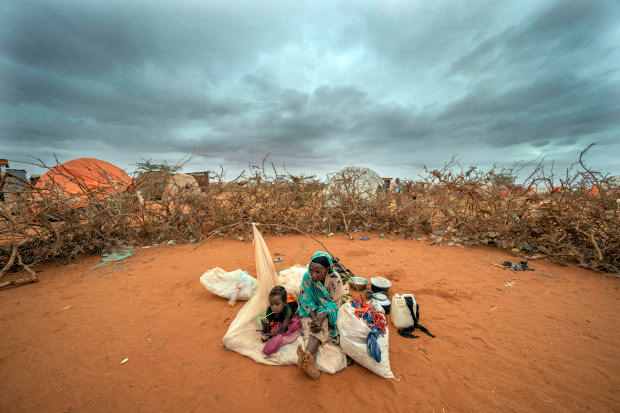In a significant humanitarian response, the World Food Programme (WFP) has announced plans to provide essential food assistance to approximately 270,000 people in Zimbabwe over the next three months. This initiative is in anticipation of a reduced harvest due to an El Niño-induced drought, highlighting a critical phase in the country’s ongoing struggle with food security.
For over two decades, Zimbabwe has faced challenges in sustaining its food supply, a situation exacerbated since the year 2000 following the government’s decision to redistribute white-owned farms. This policy shift, aimed at resettling landless Black Zimbabweans, has had lasting implications on agricultural productivity and food availability in the country.
The current crisis is further intensified by the El Niño weather phenomenon, characterized by the unusual warming of the Pacific Ocean’s surface, leading to significant changes in global weather patterns. This event is expected to severely impact crop yields in Zimbabwe and other regional countries in 2024. The Zimbabwean government has projected a 50% decrease in the staple maize harvest, estimating a production of only 1.1 million tons due to the drought.
Christine Mendes, the acting country director for the WFP in Zimbabwe, emphasized the gravity of the situation. The combined efforts of the Zimbabwean government, WFP, and other aid agencies are focused on aiding about 2.7 million individuals currently facing food insecurity. Specifically, the WFP is targeting its resources on 270,000 people, primarily in the southern regions where the drought’s impact is expected to be most severe.
The WFP’s strategy involves prioritizing aid to the most vulnerable communities. Mendes detailed the organization’s approach, explaining that a more comprehensive aid package would be provided to selected districts where the population is at a greater risk. This targeted assistance is designed to maximize the impact of the aid and ensure that it reaches those in direst need.
However, the financial aspect of this mission is a pressing concern. The WFP has set aside $39 million for its humanitarian programs in Zimbabwe, including food assistance for the next six months. Despite this allocation, there is a significant funding gap, with only 40% of the necessary funds currently available. The organization is actively seeking additional resources to address this shortfall and continue its vital support.
Given the limited funding, the WFP’s immediate focus is on distributing essential food items, such as maize grain, beans, and cooking oil, to the most vulnerable households. This approach aims to provide immediate relief to those most affected by the food crisis while efforts to secure additional funding are ongoing.
The unfolding situation in Zimbabwe serves as a stark reminder of the complex interplay between climate change, political decisions, and food security. The WFP’s intervention is a crucial step in addressing the immediate needs of those affected by the drought and highlights the ongoing need for sustainable solutions to ensure long-term food security. The role of international aid and collaboration is essential in supporting Zimbabwe during this challenging period and in the broader fight against global hunger and climate-related impacts.





